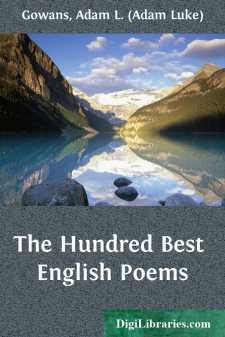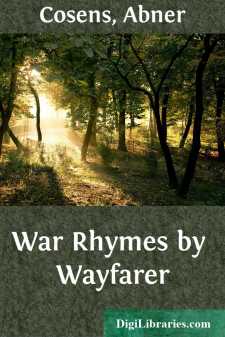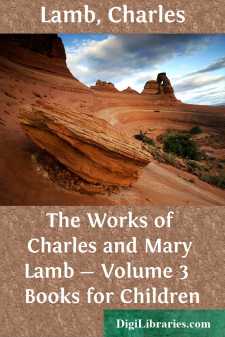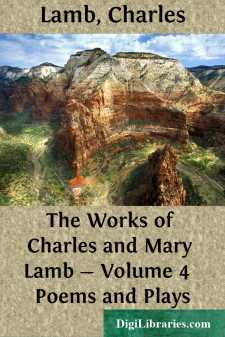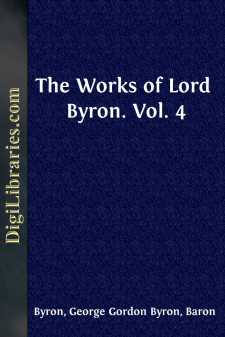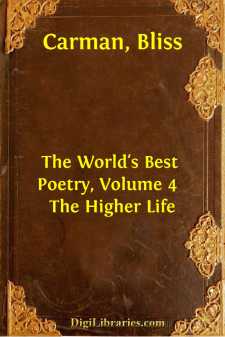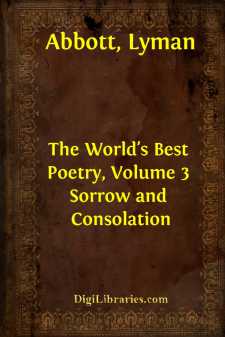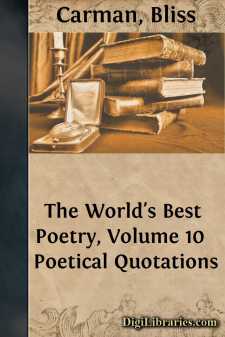Poetry Books
Sort by:
ANONYMOUS.1.Madrigal.Love not me for comely grace,For my pleasing eye or face;Nor for any outward part,No, nor for my constant heart:For those may fail or turn to ill,So thou and I shall sever:Keep therefore a true woman's eye,And love me still, but know not why;So hast thou the same reason stillTo doat upon me ever. 2.The Forsaken Merman.Come, dear children, let us away;Down and away below.Now my...
more...
by:
Abner Cosens
FOREWORD The reader of this booklet is not expected to agree with everything in it. The rhymes express only the impressions made on the writer at the time by the varied incidents and conditions arising out of the great war, and some of them did not apply when circumstances changed. They have been printed as written, however, and, if they serve no other purpose, may at least help us to recall some...
more...
by:
Edmund O. Jones
ALUN. John Blackwell (Alun), was born of very poor parents at Mold in 1797. Beginning life as a shoe-maker, his successes at the Eisteddfods of Ruthin and Mold in 1823 attracted the attention of the gentry of the neighbourhood, and a fund was formed to send him to the University. He took his degree from Jesus College, Oxford, in 1828, and died rector of Manordeifi 1840. His works were published...
more...
A Dream.I stood far off above the haunts of menSomewhere, I know not, when the sky was dimFrom some worn glory, and the morning hymnOf the gay oriole echoed from the glen.Wandering, I felt earth's peace, nor knew I soughtA visioned face, a voice the wind had caught.I passed the waking things that stirred and gazed,Thought-bound, and heeded not; the waking flowersDrank in the morning mist,...
more...
by:
Charles Lamb
THE TEMPEST (By Mary Lamb) There was a certain island in the sea, the only inhabitants of which were an old man, whose name was Prospero, and his daughter Miranda, a very beautiful young lady. She came to this island so young, that she had no memory of having seen any other human face than her father's. They lived in a cave or cell, made out of a rock: it was divided into several apartments, one...
more...
by:
Charles Lamb
INTRODUCTION The earliest poem in this volume bears the date 1794, when Lamb was nineteen, the latest 1834, the year of his death; so that it covers an even longer period of his life than Vol. I.—the "Miscellaneous Prose." The chronological order which was strictly observed in that volume has been only partly observed in the following pages—since it seemed better to keep the plays together...
more...
The source code for this HTML page contains only Latin-1 characters, but it directs the browser to display some special characters. The original work contained a few phrases or lines of Greek text. These are represented here as Greek letters, for example Οá¿âμοι. If the mouse is held still over such phrases, a transliteration in Beta-code pops up. Aside from Greek letters, the only...
more...
by:
Bliss Carman
RELIGION AND POETRY BY WASHINGTON GLADDEN. The time is not long past when the copulative in that title might have suggested to some minds an antithesis,—as acid and alkali, or heat and cold. That religion could have affiliation with anything so worldly as poetry would have seemed to some pious people a questionable proposition. There were the Psalms, in the Old Testament, to be sure; and the minister...
more...
by:
Lyman Abbott
AN INTERPRETER OF LIFE. Poetry, music, and painting are three correlated arts, connected not merely by an accidental classification, but by their intrinsic nature. For they all possess the same essential function, namely, to interpret the uninterpretable, to reveal the undiscoverable, to express the inexpressible. They all attempt, in different forms and through different languages, to translate the...
more...
by:
Bliss Carman
AFTER ALL, WHAT IS POETRY? BY JOHN RAYMOND HOWARD. Considering the immense volume of poetical writing produced, and lost or accumulated, by all nations through the ages, it is of curious interest that no generally accepted definition of the word "Poetry" has ever been made. Of course, all versifiers aim at "poetry"; yet, what is poetry? Many definitions have been attempted. Some of...
more...


